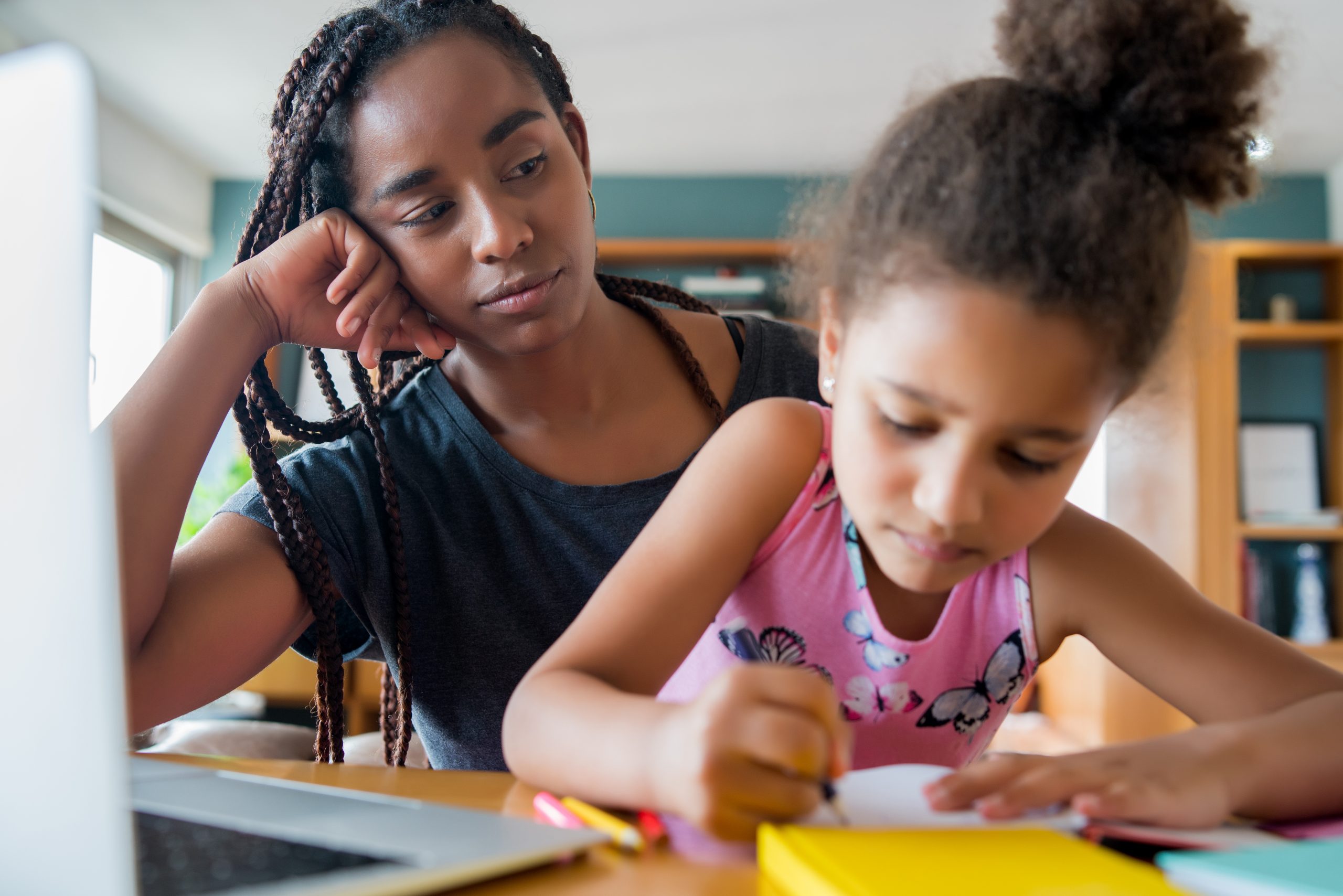Schools across the country have shut their doors amid the coronavirus pandemic. For almost a year, students have learned from home. In many instances, schools have reopened and implemented social distancing measures. Still, though, according to an August Census report, 93% of households with school-age children reported some form of learning from home during the pandemic.
There are a myriad of resources students can lose when they cannot attend school in-person, including things like access to technology that supports their learning, social development, and even food and shelter. For students receiving special education services, the school closures and changes in learning during the pandemic have altered access to these critical programs.
The U.S. Department of Education reports that seven million, or 14 percent, of public school students receive special education services. These services, such as Individualized Education Plans, speech-language and occupational therapies, and psychological services, are simply not as accessible during the pandemic.
Diane Southard, a St. Louis County mother of eight, is bracing the brunt of this crisis. Her children normally depend on individualized plans to support their learning. But, as they attend school from home, Southard is in charge of teaching multiple kids, each of whom need one-on-one support.
When discussing what support schools have provided to accommodate her children during this time, Southard told St. Louis on the Air, “It does not even come close to what services they were receiving in the school environment during that typical pre-COVID time.”
This poses the question: Should schools allow their students receiving special education services to come back to the classroom? When New York City Public Schools reopened for the second time in November, the first schools to open in the phased approach were schools for students with disabilities.
In a letter published in the American Journal of Psychiatry, Dr. John Constantino, co-director of the Intellectual and Developmental Disabilities Research Center at Washington University, stressed that children and adults with intellectual and developmental disabilities face major burdens due to the pandemic and the shift to online learning.
Dr. Constantino urged doctors to prioritize children with intellectual and developmental disabilities with necessary services, such as in-person learning and one-on-one learning, writing, “Families who have watched the progress of their children, starting from March at the start of the pandemic, for those kids who just cannot benefit from virtual learning, they have watched their children’s educational and achievement and even social and communicative progress either stall or go backwards as a function of the pandemic.”
As schools continue to navigate the coronavirus pandemic, students with special education services may continue to experience the negative impacts of remote learning, including inadequate access to their Individualized Education Plans.
Listen to this segment on St. Louis on the Air here.
Kennedy Hunt, P.C. expects many students who receive special education services will require compensatory services to remediate for the absence of services during school closings caused by COVID-19. Parents who believe their child is not receiving appropriate services or believes their child needs additional, compensatory services after schools reopen should fill out an online questionnaire or call 314-872-9041 for more information.

